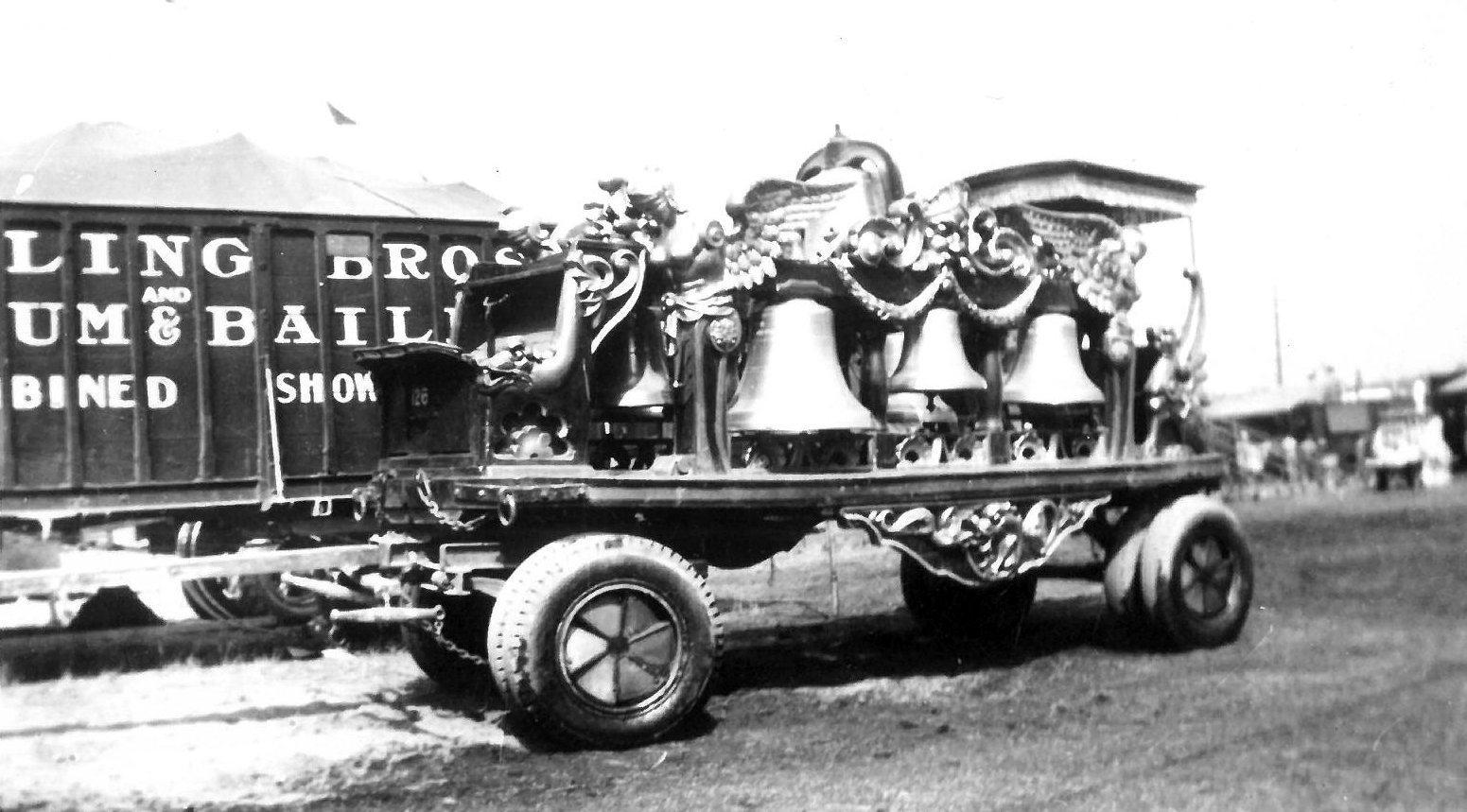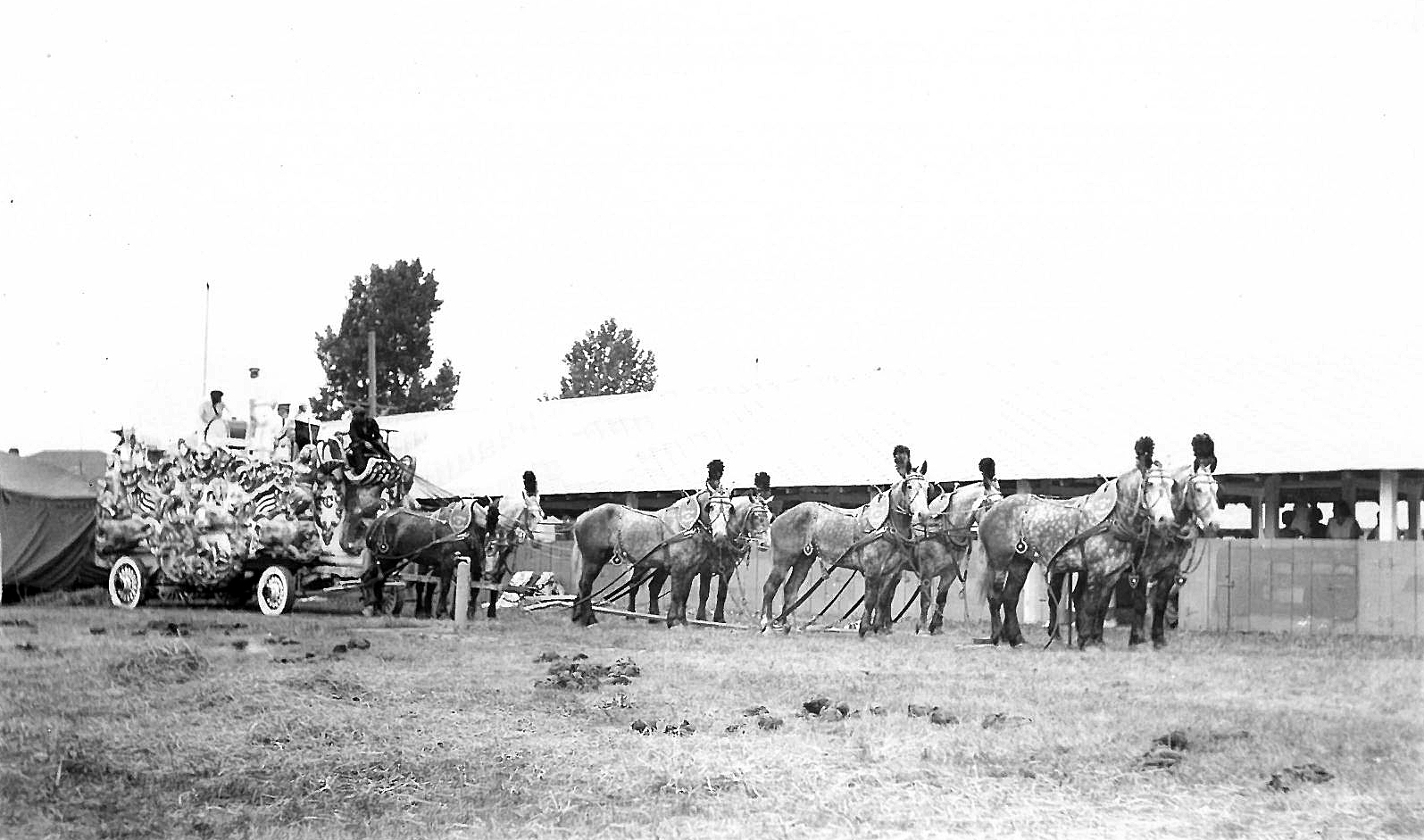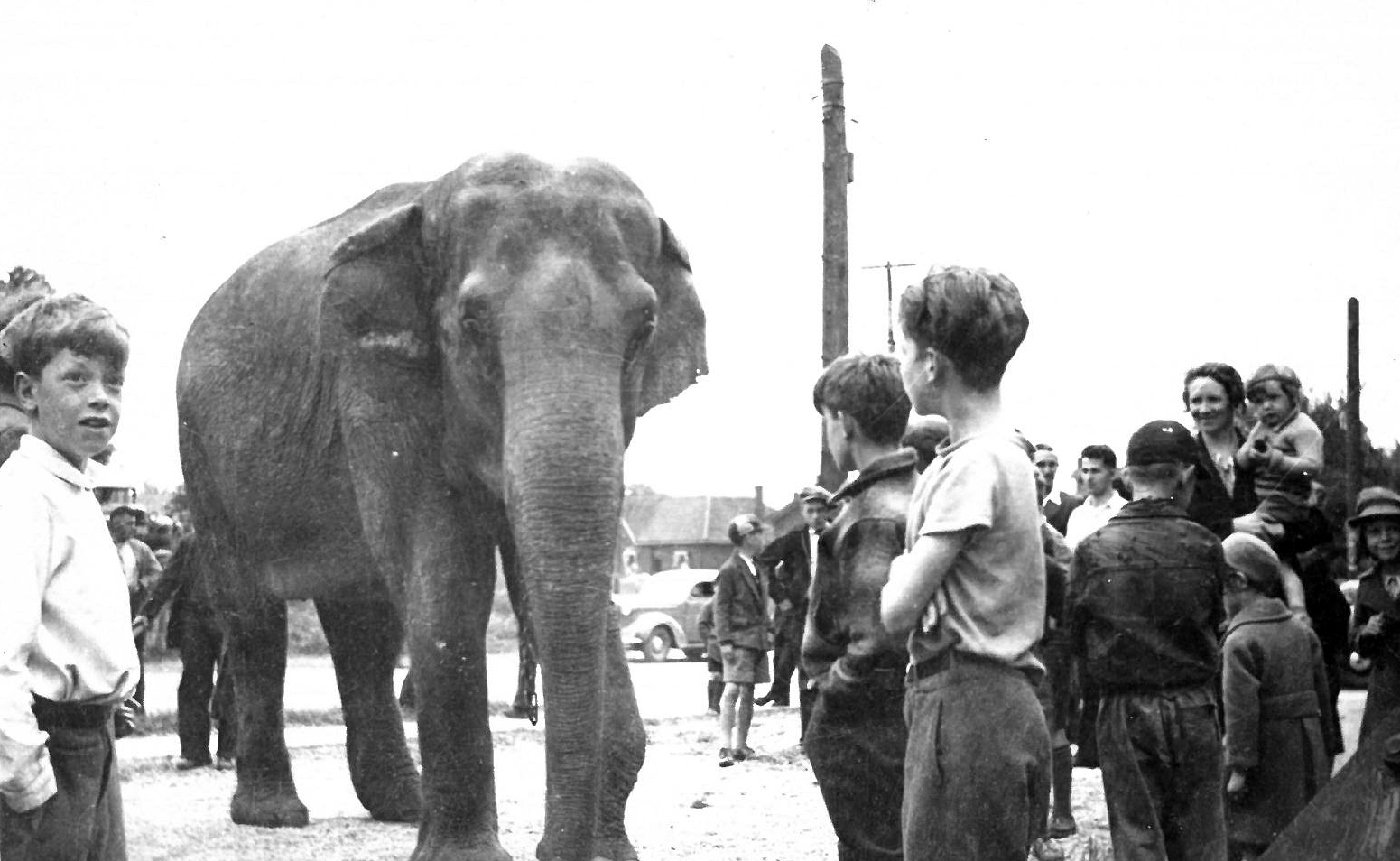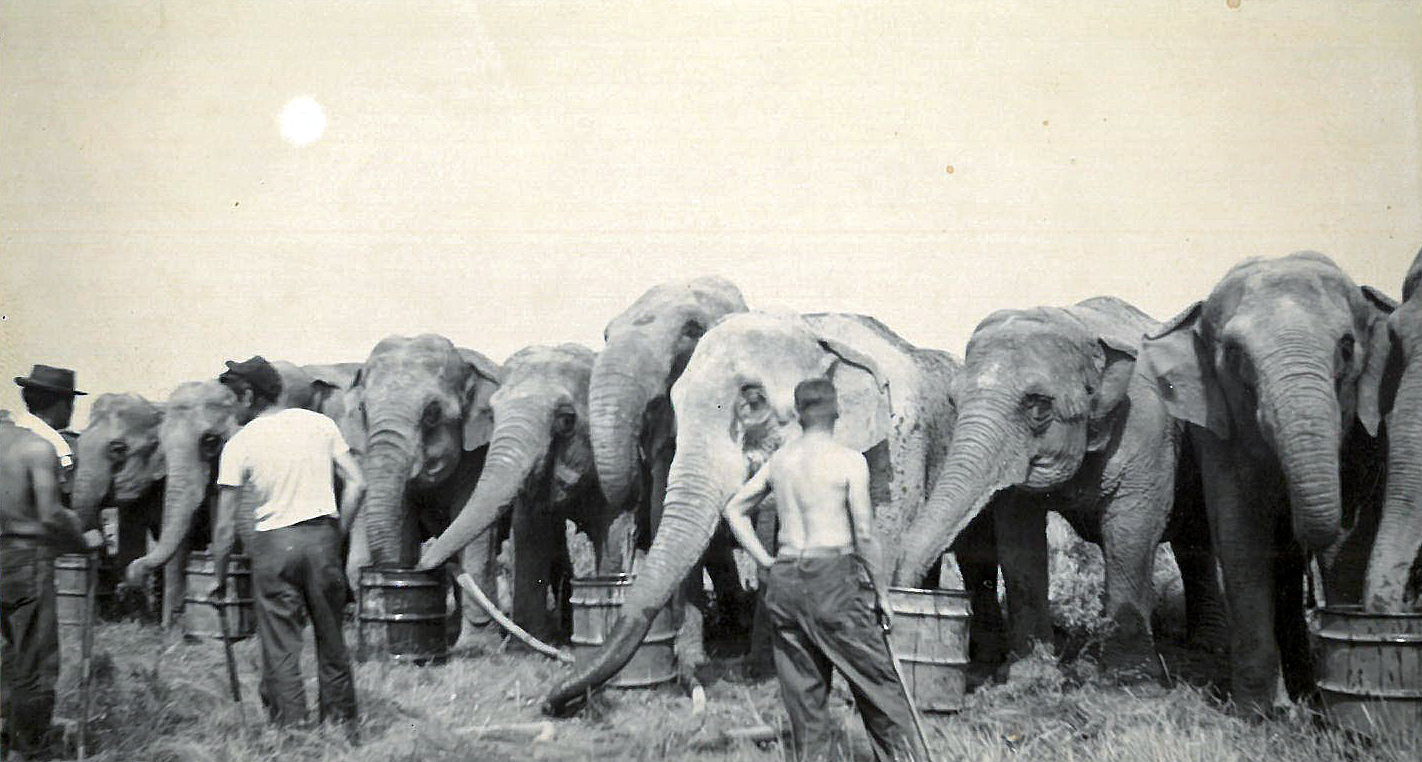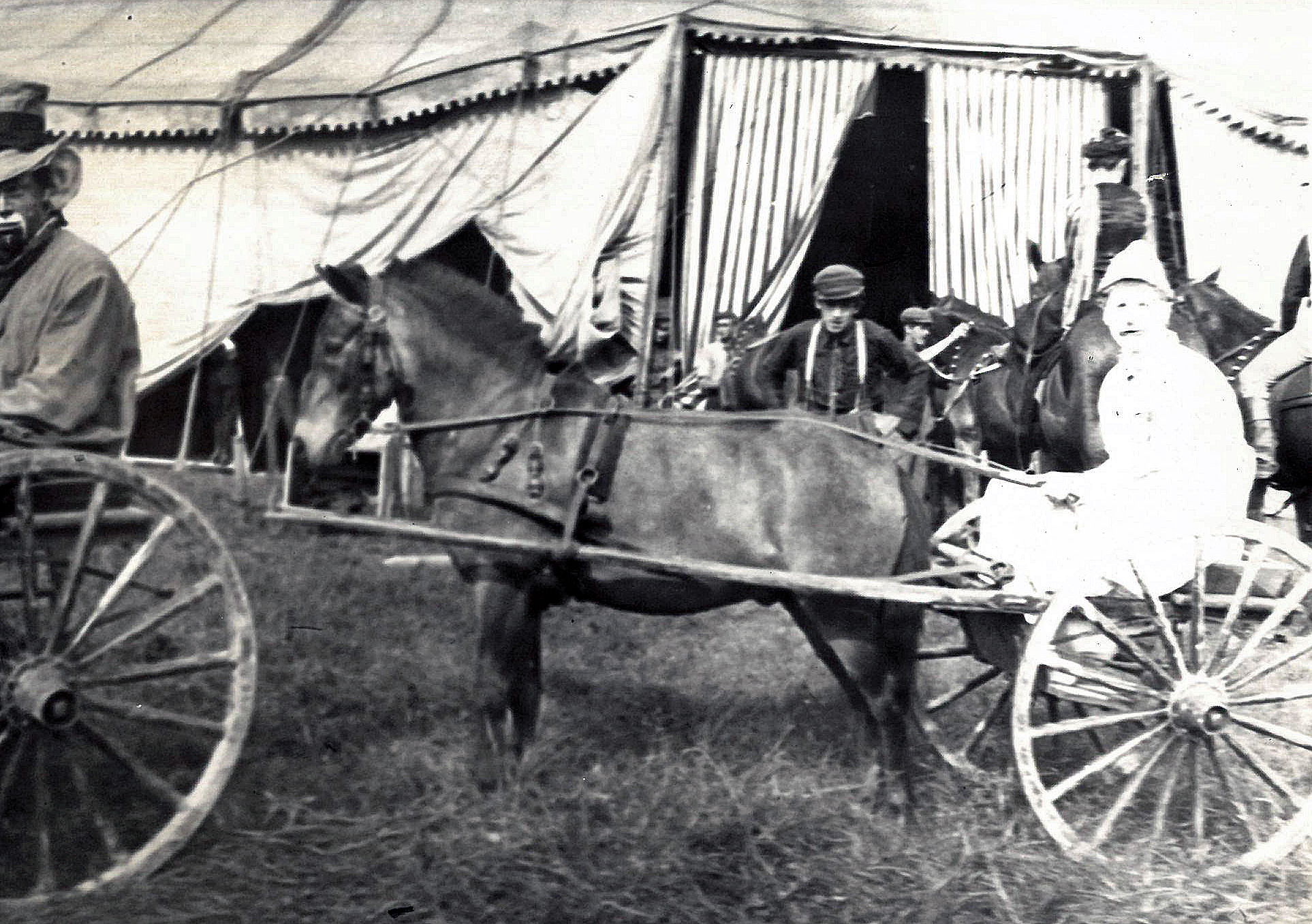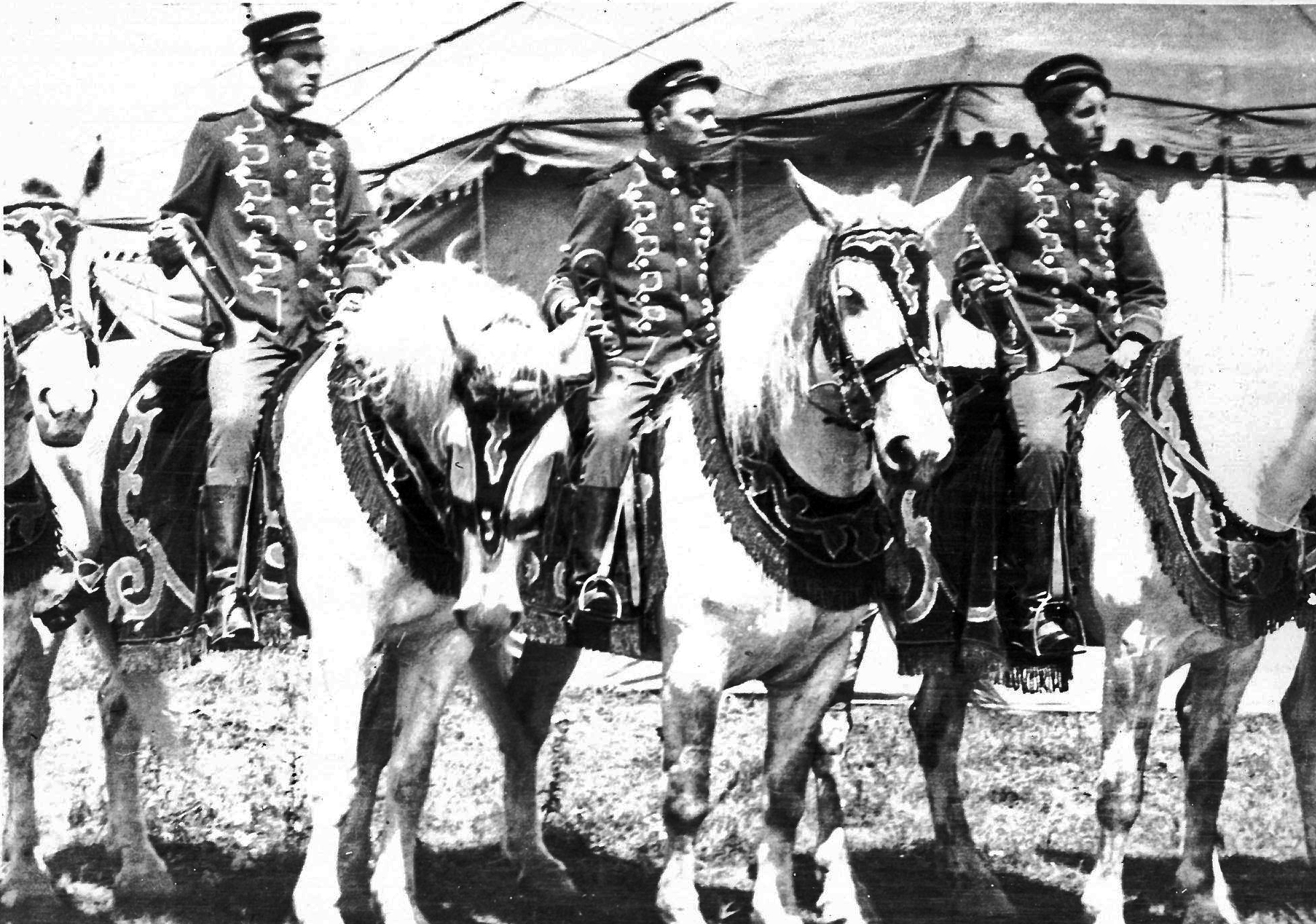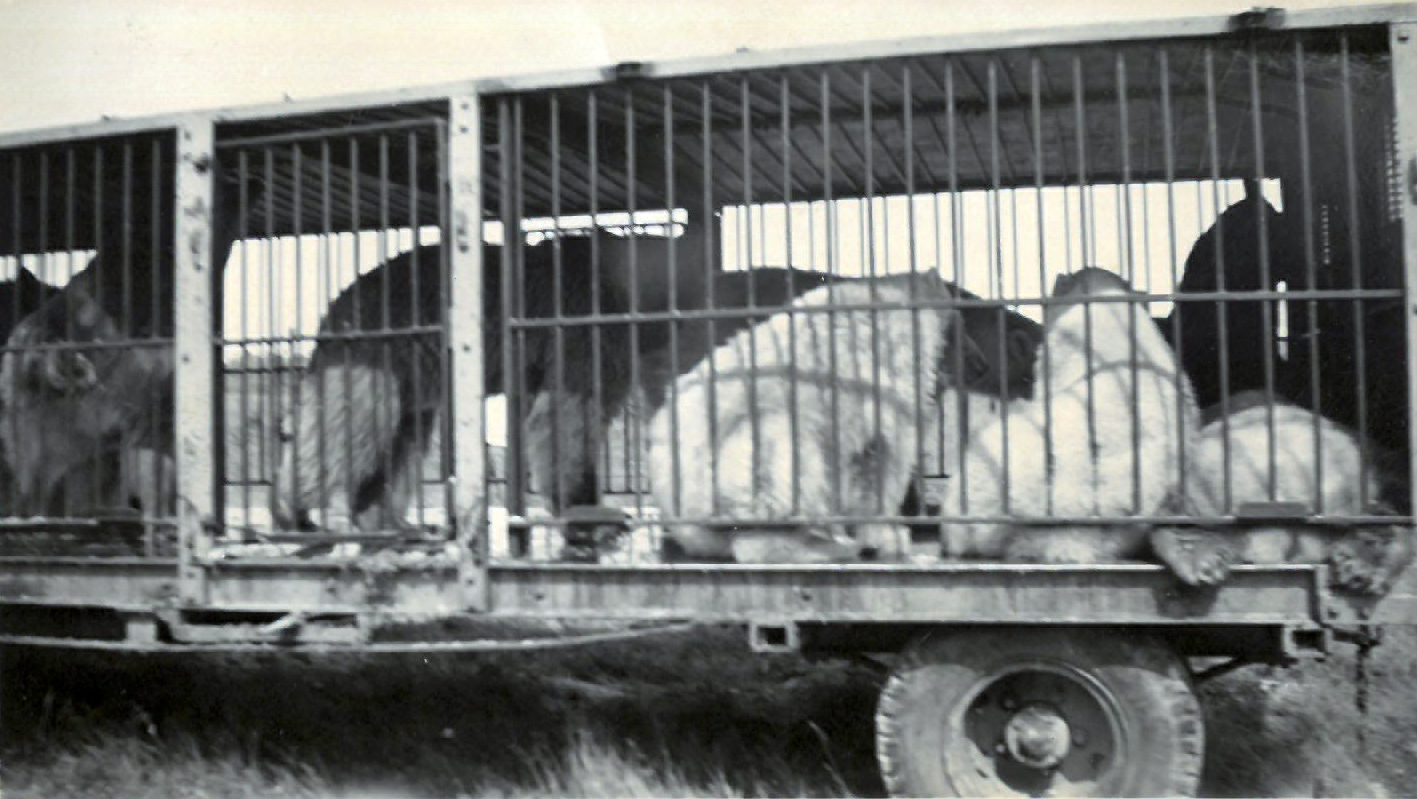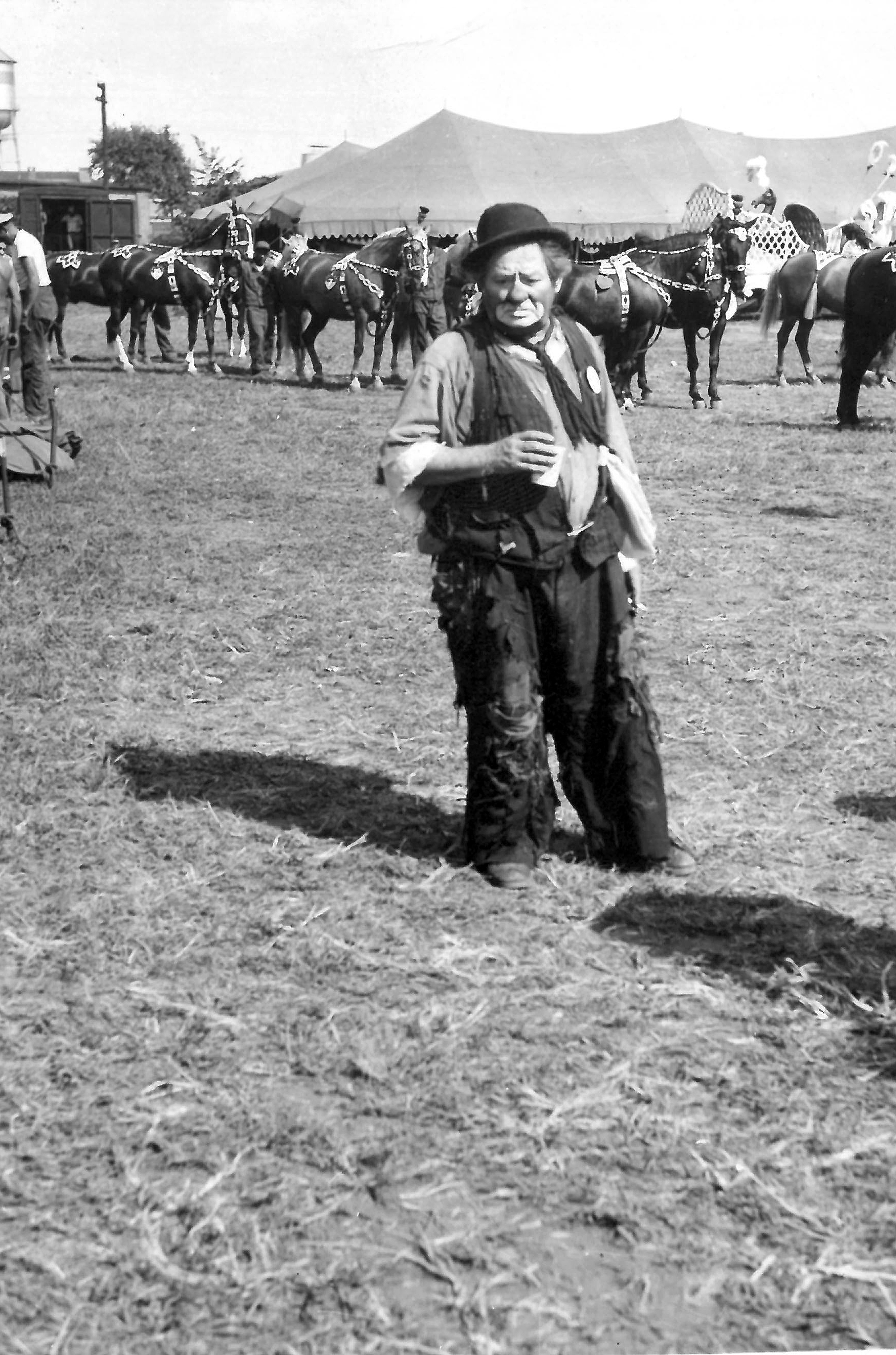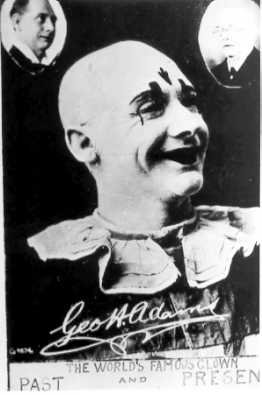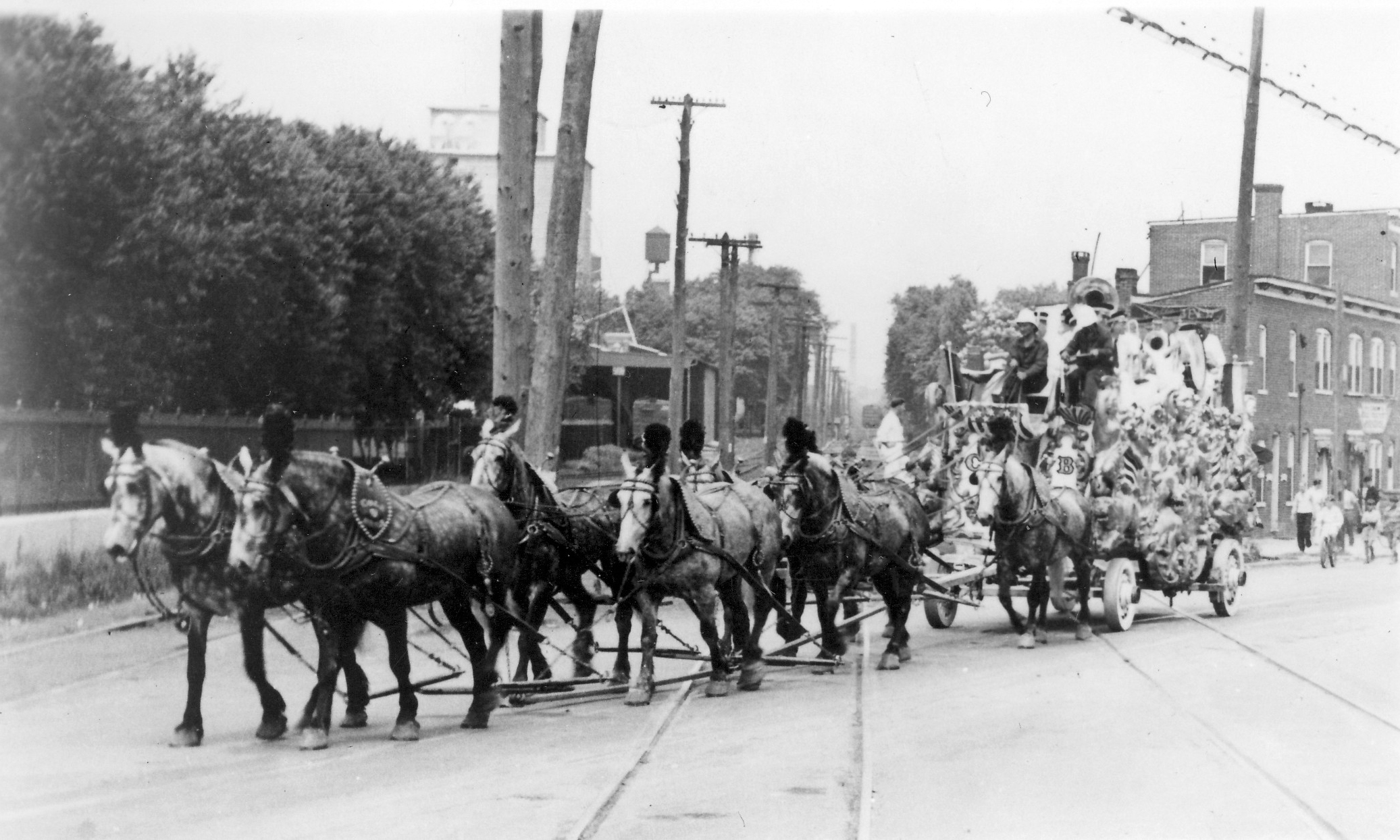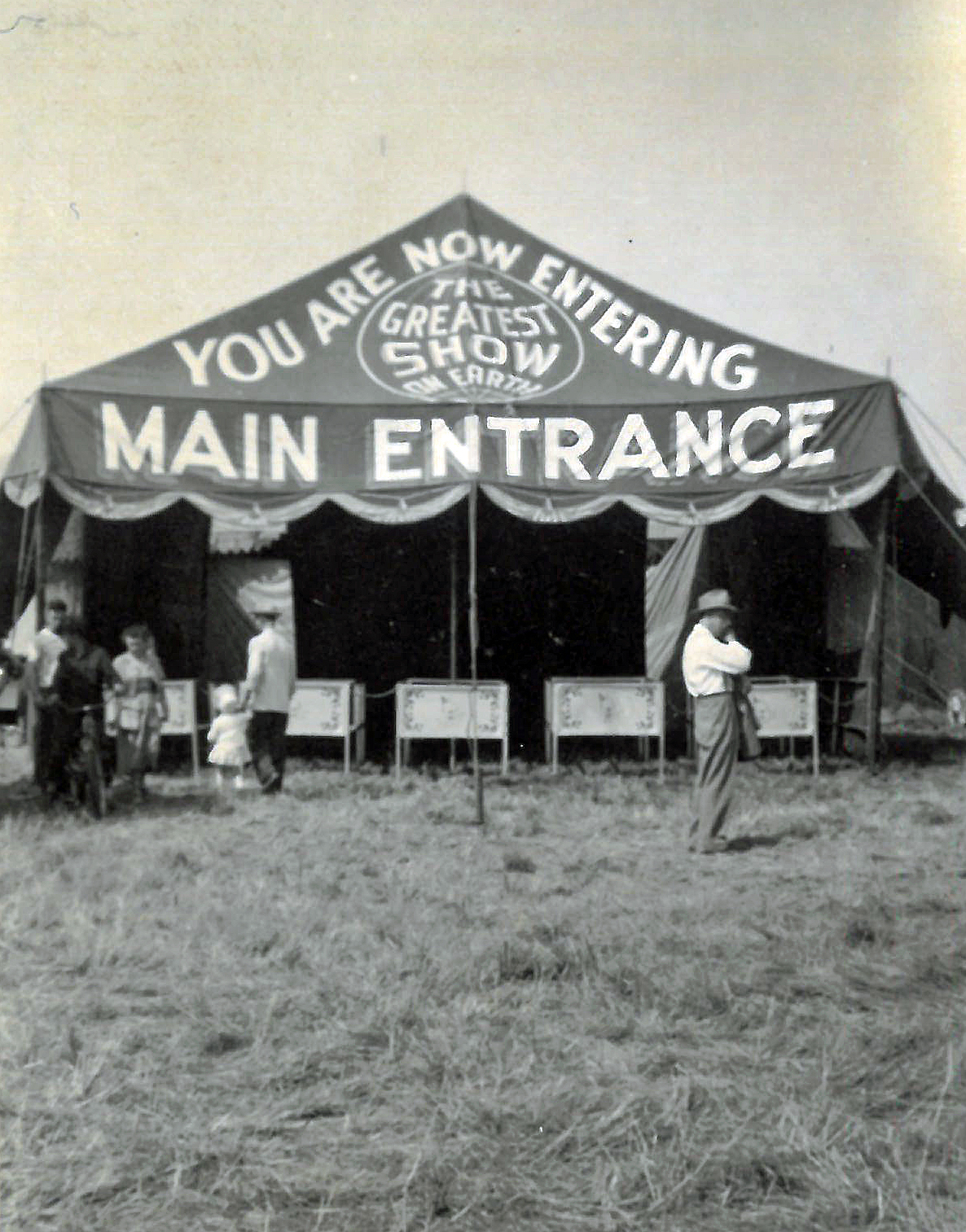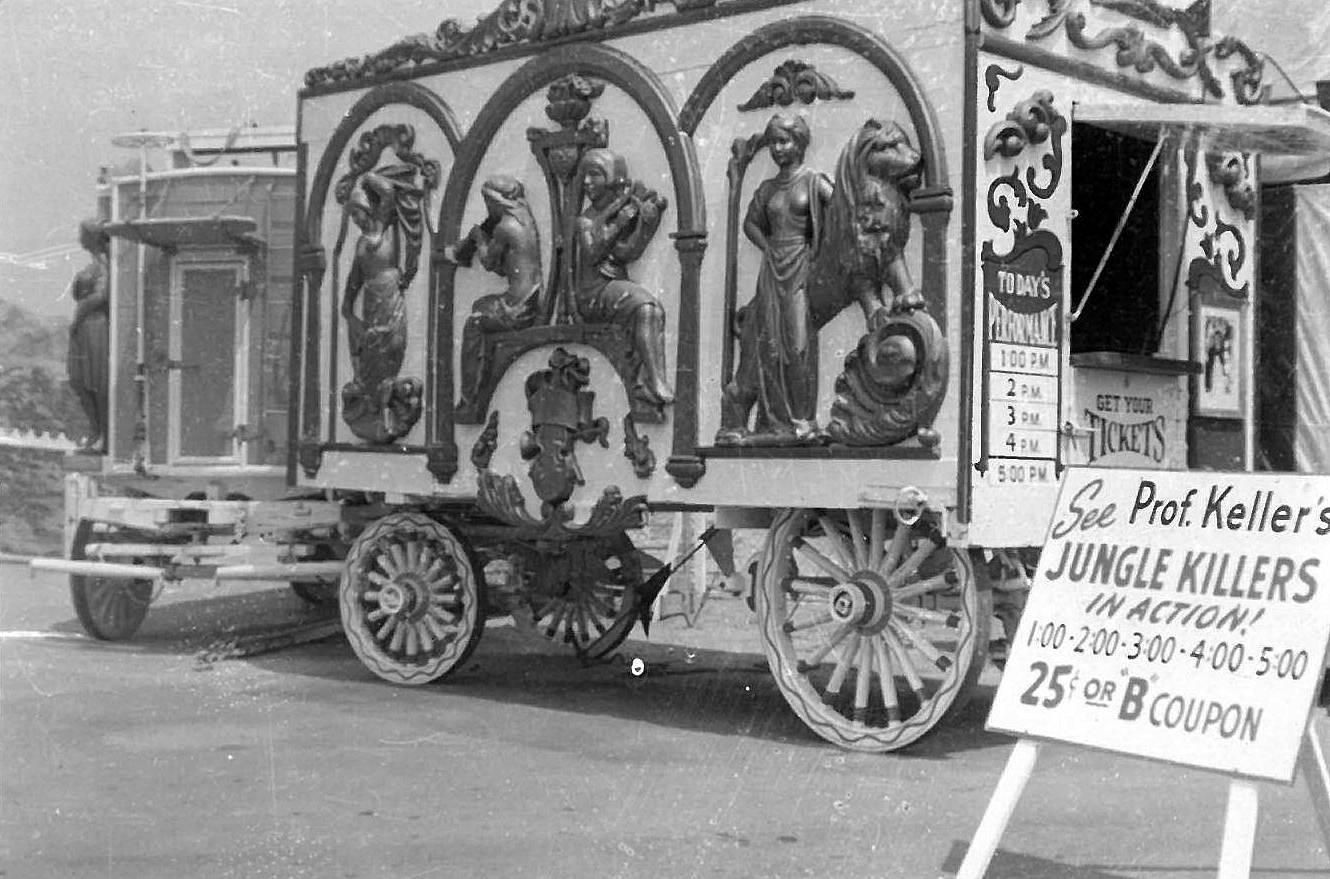Dover Public Library has a small collection of old photographs of circuses. They may have been taken in Dover, some indicate they were purchased at auction. Dover has a history with circuses so perhaps that is why they ended up at the Library.
1884, Daily Republican:
“Barnum’s agents are telling around that the sacred white elephant will eat and drink from the golden water jars and troughs which the priests who attend him in Siam insisted should be included in his purchase. The holy brute is to travel in a gorgeous palace car… The third section is to be set apart a s a place of worship for the Burmese priests and will contain their idols. The priests have been cautioned not to address each other as Mike and Paddy.” The elephants were treated to a bath in the Cocheco at the Soap Factory on River Street, The huge fellows wallowed and rolled in the water and enjoyed themselves immensely.
1903 July:
“Barnum and Bailey’s circus considers Dover the best show place for a city of its size. There were 20,000 people in the tent during the two performances this year.”
One of Barnum and Bailey’s heavy wagons loaded with tents and poles said to weigh ten tons, ran a wheel on the hay scales in front of F.W. Neal’s Hardware store and cut through the plank and broke the castings. The load was being hauled to the railroad to be loaded on the cars.
From Historic Rambles about Dover by Robert A. Whitehouse c1999.
Cushing’s Circus
Joseph Cushing was born on the family farm on the Dover Point Road on November 14, 1818. The farm included land along the Bellamy River from St. Mary’s New Cemetery down to the Varney Brook, and the lane leading into the farmhouse is now called Cushing Road. The house is still standing and dominates a landscape of modern ranch and cottage style homes. Joseph got his education in Dover Schools; probably over at the nearby Upper Neck District Schoolhouse near the end of Tuttle Lane, and then up at the Pine Hill Schoolhouse in Dover. When he was twenty years old, he left the farm and went to Gloucester, Massachusetts, to work in a fish market, but only stayed there a short time. A circus came to Gloucester and Joseph knew that that was what he wanted. He joined as a roustabout, but saved his wages and soon bought the lemonade concession. He later added the candy business. He was on his way then and became part owner, with the side shows under his control. He learned the circus business thoroughly and eventually bought out the whole show, and it became Cushing Circus of Dover, N.H.
Circuses in those days were transported by team from town to town as booking had to be made within ten to fifteen mile radius, what with gravel and clay roads and possible rainy weather. The equipment had to be struck each night, but the performers lodged in rooming houses and traveled by day.
Mr. Cushing was a great publicity man and believed in side show freaks to up his attendance records. He was always on the lookout for exceptional exhibits and it is said that he taught P.T. Barnum and other circus greats some on their come-on stunts. Some of their odd people wintered in Dover and were seen around our streets during the off season. One of the Colonel’s publicity gimmicks was a team of 40 matched cream colored horses drawing his band wagon through the streets and driven by a single pair of reins and one driver. What a stunt.
As success continued, Mr. Cushing, or Colonel Cushing as he got to be known, toyed with the idea of taking his show to Europe but could not finance it alone, so he took in a partner, a Mr. Seth Howe; and they charted a steamship The South Hampton, put aboard their forty acts of animals and all went to England. They were very successful and stayed over there three years- the first American circus to ever tour England. On Friday, May 17, 1858, they gave a command performance before Queen Victoria, Prince Albert and their guests. The velvet gown that Mrs. Cushing wore at that performance is now on exhibition at our Woodman Institute.
Eventually the circus property was sold at auction in London and Colonel Cushing returned with one hundred thousand dollars – a fortune in those days. But the Colonel was not ready to retire yet, so in 1861 he got another show together and toured the South and Southwest. He was again successful and his restless nature drove him to a new venture. This time he got his friends to back him and chartered another ship The North Star, and took the whole show to South America. Everything went fine with this venture, as far as business was concerned but things went wrong suddenly when the treasurer disappeared with all the funds. The Colonel came back to Dover in 1877 and retired to the farm where he lived until his death in 1884 at the age of 66. But the circus world did not forget him and many circus people came to visit him in his retirement. The famous midget General Tom Thumb visited him many times. There was a story our Dad told about Tom Thumb contracting a cold while visiting the Colonel and our grandpa Dr. Jefferson Smith was called in to treat him. We have heard many more stories from father’s generation about the town boys going down to the Cushing farm to see the lions and tigers in their winter quarters. Also there was the one about the orangutan that the Colonel allowed in the house and could wear clothes and eat with knife and fork.
From Rambles About the Dover Area 1623-1973 by Daniel J. Smith, 1973.

